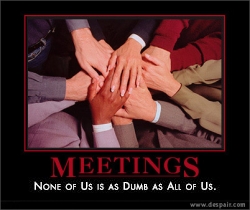Paul Roberts uncovers H&R Block’s mismanagement of social security numbers in H&R Block Mailing Reveals Customers’ SSNs. The leak was attributed to user error, but the blunder is most likely due to ill-implemented software. After all, software is responsible for printing the labels that are used for these software packages and for assessing their marketing efforts. Having the software responsible for generating tracking numbers is a common expectation.
Ordinary computer users were able to recognize their own social security numbers within a 47-digit tracking number, which is used primary for marketing purposes. Although I have not seen the software package first hand, I am certain that the social security numbers can be found at a particular offset within the tracking number. Knowing this offset will allow a person to get SSNs from labels on these packages.
Many people provide information to H&R Block when they use their tax preparation services. H&R Block naturally downplayed the threat of identity theft from their recent information leak. The company needs to minimize their negligence and increase their effort in safeguarding the information that they gather from clients, instead of simply shrugging off their mistake as a mere accident.
Nate Anderson’s Following the Money: How Subway Ads Ended Up in Counter-Strike is recent recognition of a media channel that is available for advertisers. There seems to be increasing popularity of advertising within video games. I recognized advertising within THQ’s Splashdown: Rides Gone Wild, a video game that I tested a couple of years ago. Ad placement within this game was documented here on May 2003. The violation of Valve’s EULA with the presentation of advertisements through Counter-Strike servers is unfortunate. Releasing an authorized mod that serves advertisements for Counter-Strike might be beneficial, through royalties or licensing fees, to Valve or Sierra. Other game developers and publishers may want to consider allowing their products, which support the Internet, to serve advertisements.
Ginger Applegarth provides a seven point guideline for taking a break from the working life in Quit Work for a Year: 7 Steps to do It Right. The first suggestion made in the guideline conveys very important information, which might not be known to workers, their employers, or their employers’ human resources departments. There may be an option to request a leave of absence instead of quitting outright.
Workers need a break, especially IT workers who are under constant stress. When two or three weeks is not enough to recover from such stress, perhaps a longer break from work is needed. If a worker is willing to forgo earned income for more time off, the employer should recognize the severity of this need and consider requests for extended leave carefully. The need for time off from work may be so severe as to require the employment relationship to be terminated.
 Although the authenticity of the studies covered in the article are questionable, Marc Abrahams’ Bored Meetings echoes my opinion on excessive business meetings. Office Space passively makes fun of this practice with the phrase “planning to plan” written on a blackboard in the background. Having too many meetings may have adverse effects on workers. Most meetings are intended to coordinate the activities of a group of people, but trivial meetings or meetings that rehash the content of previous meetings provide not much more than a reduction in available time to complete a project before its deadline.
Although the authenticity of the studies covered in the article are questionable, Marc Abrahams’ Bored Meetings echoes my opinion on excessive business meetings. Office Space passively makes fun of this practice with the phrase “planning to plan” written on a blackboard in the background. Having too many meetings may have adverse effects on workers. Most meetings are intended to coordinate the activities of a group of people, but trivial meetings or meetings that rehash the content of previous meetings provide not much more than a reduction in available time to complete a project before its deadline.
I have heard about salespeople who lose interested prospects by excessively talking. People who were ready to purchase the product or service changed their mind simply because the salespersons continuously jabbered. The salespersons talked their prospects out of an almost certain sale. These salespersons lost the sale, because they lost focus on their objective. Everything that they say to potential clients should help them close deals. Instead, through excessive speech, these salespersons discouraged their audience from taking the desired action.
Meetings should also have an objective. This objective can be drafting a project schedule, providing a progress update, or possibly changing a company’s direction. Once its objective is met, the meeting should be dispersed out of respect for each person’s time. Every worker has tasks that need to be completed before a specified time. Completing tasks within tight schedules provides enough stress. Conducting meetings with little or no benefit increases this stress and may reduce productivity. Missed deadlines caused by excessive meetings demoralize teams. Before scheduling another meeting, determine the meeting’s objectives and benefits, and focus the meeting on its objectives.
 Today marks the end of CES 2006, which was held this year in Las Vegas. The show spanned the Sands Expo and all the halls at the Las Vegas Convention Center. Over half a million companies were represented, including all the major players in the consumer electronics industry. Other major companies that do not have any consumer electronic offerings were also present.
Today marks the end of CES 2006, which was held this year in Las Vegas. The show spanned the Sands Expo and all the halls at the Las Vegas Convention Center. Over half a million companies were represented, including all the major players in the consumer electronics industry. Other major companies that do not have any consumer electronic offerings were also present.
Notable developments include TV over IP technologies and enhanced television display picture quality. Honda demonstrated their humanoid robot, Asimo. Rumors of a new logo and slogan for Intel are confirmed. Intel’s new slogan is “Leap Ahead,” and their new logo looks a bit anemic when compared to their earlier one. The Microsoft booth at the center hall was fairly expansive and featured their different product lines.
CES 2006 was a great opportunity to interact with several product vendors. It was like walking into a super Best Buy store and being able to talk with company representatives personally about their products.

 Today marks the end of CES 2006, which was held this year in Las Vegas. The show spanned the Sands Expo and all the halls at the Las Vegas Convention Center. Over half a million companies were represented, including all the major players in the consumer electronics industry. Other major companies that do not have any consumer electronic offerings were also present.
Today marks the end of CES 2006, which was held this year in Las Vegas. The show spanned the Sands Expo and all the halls at the Las Vegas Convention Center. Over half a million companies were represented, including all the major players in the consumer electronics industry. Other major companies that do not have any consumer electronic offerings were also present.